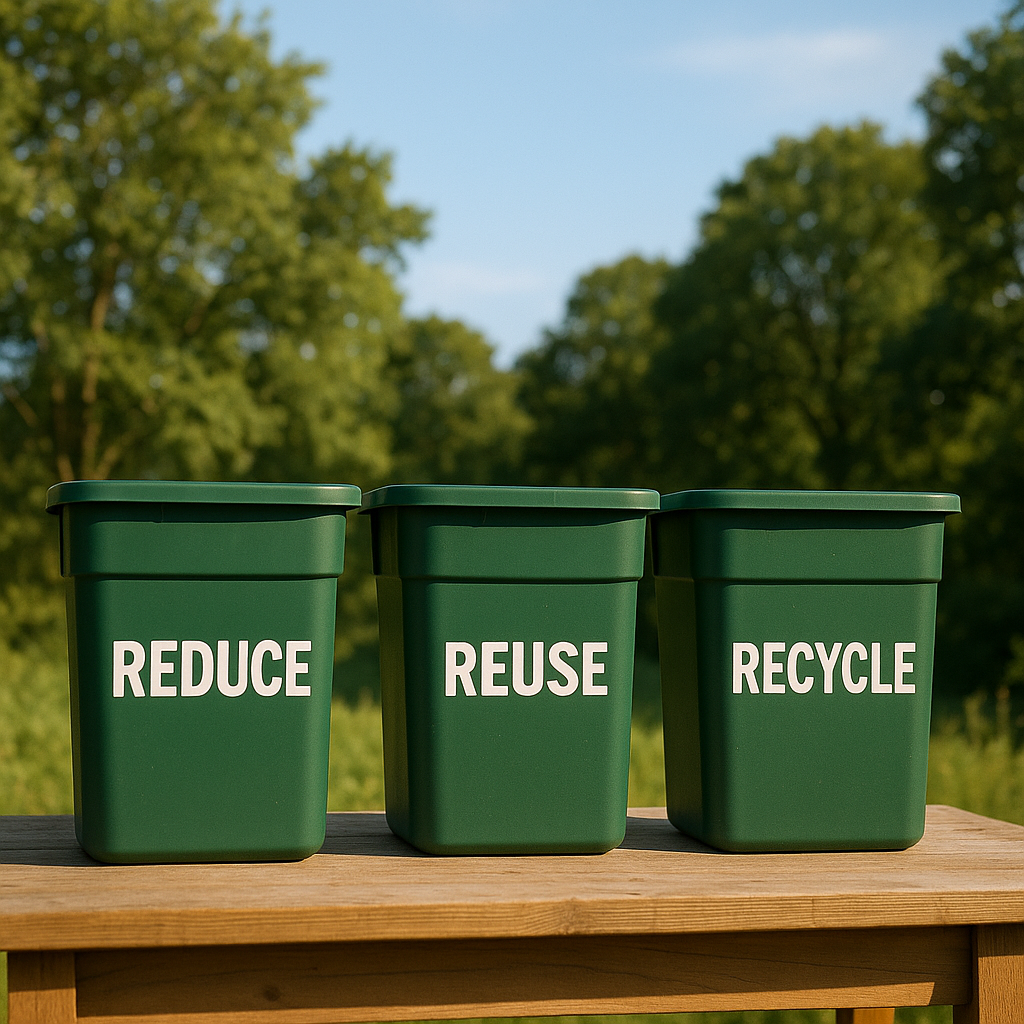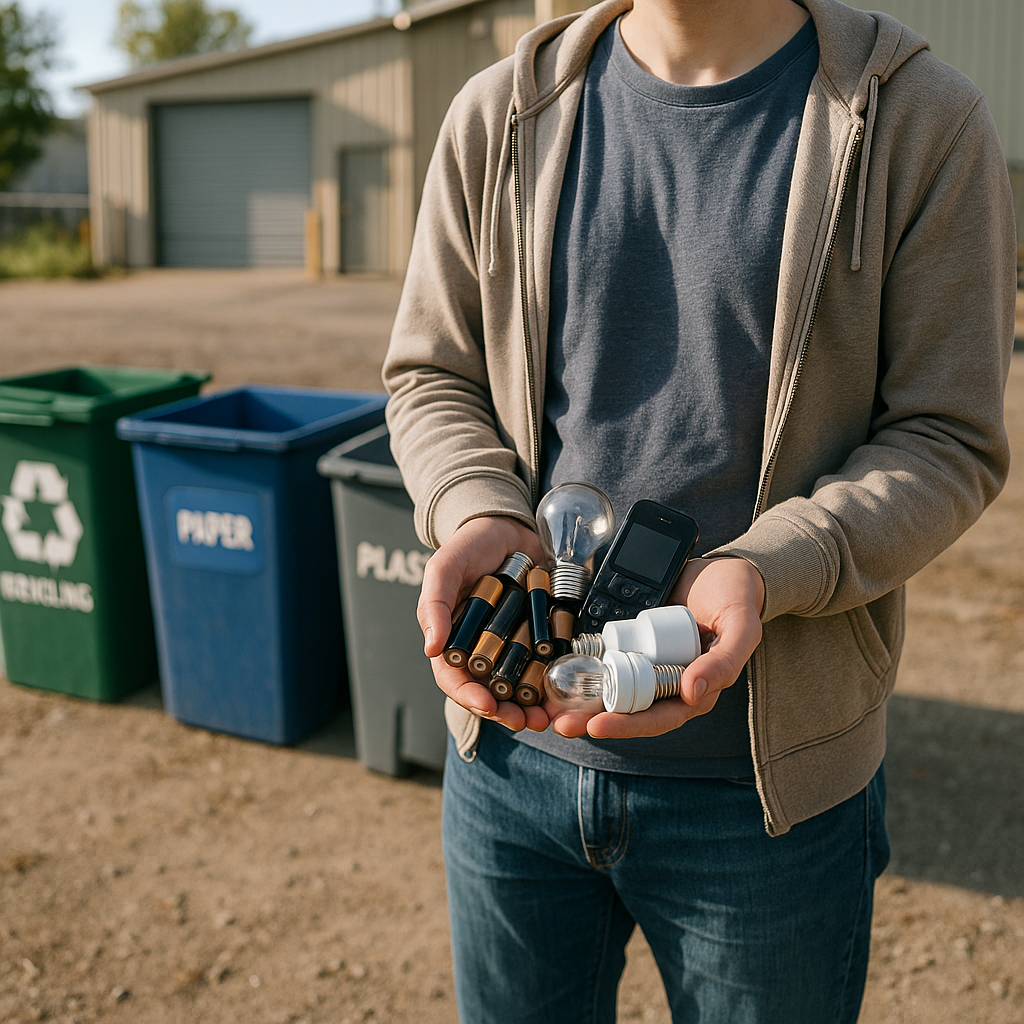5901 Botham Jean Blvd, Dallas, TX 75215
A Guide to What Can Be Recycled in Texas
November 28, 2025Recycling rules in Texas are not one-size-fits-all. Guidelines vary significantly from one city to another. Understanding what can be recycled in Texas, based on your specific location, is crucial for reducing waste, helping the environment, and ensuring local recycling programs run smoothly and effectively.
Municipal contracts, processing centers, and vendor capabilities create different standards across Texas communities. What Austin accepts for curbside recycling might be rejected in Houston or Dallas. These variations affect everything from plastic types to glass collection methods. Some cities handle certain materials through specialized drop-off programs rather than regular pickup schedules.
While common items like paper and metal are widely accepted, knowing the local nuances for plastics, glass, and special materials prevents contamination of entire batches. When wrong items enter recycling streams, they can compromise whole loads and send otherwise recyclable materials to landfills. Effective waste management depends on municipalities, businesses, and residents following their specific local recycling guidelines to maximize environmental impact and program success.
What Common Items Can You Recycle Curbside?

Texas cities operate single stream recycling programs that accept a standard set of materials. Paper products, cardboard boxes, metal containers, and select plastic bottles form the foundation of most curbside collection services. These materials move through automated sorting facilities where mechanical systems separate them for processing into new products.
Paper recycling encompasses newspapers, magazines, office paper, junk mail, and catalogs. Most Texas municipalities accept mixed paper without requiring residents to sort by type. Coated paper products present regional variations in acceptance policies. Austin recently expanded its program to include coffee cups and food containers with paper coatings.
Cardboard collection includes shipping boxes, cereal boxes, shoe boxes, and paperboard packaging. Corrugated cardboard boxes must be flattened and broken down to approximately two-foot squares. Food-contaminated cardboard like pizza boxes requires different handling depending on local program specifications.
Plastic bottle recycling typically focuses on containers marked with resin codes #1 and #2. These include water bottles, soda bottles, milk jugs, and detergent containers. Some Texas cities accept expanded plastic ranges. Austin’s program accepts plastics #1 through #7, including food containers, laundry baskets, and lawn furniture that fits within cart dimensions.
Metal container acceptance covers aluminum cans, steel cans, and tin cans from food and beverage packaging. Clean aluminum foil balled to two inches or larger qualifies for most programs. Aerosol cans require complete emptying before placement in recycling carts. Paint cans and hazardous material containers need separate disposal through household hazardous waste programs.
Glass container programs vary significantly across Texas cities. Austin accepts all glass bottles and jars with caps and labels intact. Round Rock includes clear, green, blue, and brown glass containers. Other cities may restrict glass collection due to processing facility limitations or transportation costs.
Proper preparation ensures materials reach processing facilities in optimal condition. Items must be empty, clean, and dry before cart placement. Residents should remove caps from containers when required by local specifications. Crushing cans and bottles conserves cart space while maintaining material integrity for sorting equipment.
What Are Some Surprising Items You Can Recycle?

Advanced recycling technology continues expanding the range of materials we can divert from landfills. Many items that seem destined for trash actually have specialized recycling programs. These unexpected recyclables demonstrate how innovation drives us closer to zero waste goals.
Everyday Art Supplies Get Second Lives
Crayons represent a surprising recycling success story. The National Crayon Recycling Program processes over 120,000 pounds annually of discarded crayons through partnerships with companies like Crazy Crayons. These materials get melted down and reformed into new, uniquely shaped crayons for continued use.
Schools and art programs benefit significantly from these crayon recycling initiatives. Rather than contributing to landfill waste, broken or worn crayons find new purpose. The reusability of wax-based art supplies makes this recycling process particularly efficient.
Wine Cork Recovery Programs
Wine corks present another unexpected recycling opportunity that many consumers overlook. Natural cork materials can be processed into footwear, yoga blocks, and building materials through specialized programs. Organizations like ReCORK operate extensive collection networks across North America.
Cork recycling supports sustainable forestry practices while reducing landfill waste. The material’s natural properties make it suitable for various manufacturing applications. Collection sites at liquor stores and restaurants make cork recycling increasingly accessible to consumers.
Sports Equipment and Specialty Items
Tennis balls demonstrate how sports equipment can gain extended lifecycles through recycling technology. Specialized programs convert used tennis balls into court surfaces and playground materials. The rubber components retain structural integrity even after extensive play use.
Contact lenses and their packaging also qualify for specialized recycling streams. Programs like those operated through Bausch + Lomb partnerships accept used lenses, blister packs, and foil tops. These materials require specific processing due to their small size and mixed material composition.
Electronics accessories including old mobile phones and MP3 players contain valuable materials worth recovering. Manufacturer take-back programs often provide trade-in credits while ensuring proper material recovery. These programs prevent toxic materials from entering landfills while reclaiming precious metals.
The expansion of unique recyclables reflects growing environmental awareness and technological capabilities. We observe increasing demand for specialized recycling services as consumers seek zero waste solutions. Education about these programs remains essential for maximizing participation rates and material recovery.
Conclusion: Recycle Right for a Cleaner Texas
Recycling effectively in Texas comes down to knowing your local city’s guidelines. Each major Texas city has different recycling rules, from what materials are accepted curbside to specific preparation requirements. By following the “empty, clean, dry” rule for containers, separating common recyclables like paper, cardboard, plastics, and metal cans, and keeping contaminants like plastic bags and electronics out of your bin, you can make a significant impact. These small actions help conserve resources, reduce landfill waste, and support environmental conservation for the entire state.
Taking hard-to-recycle items to proper drop-off locations and staying informed about your municipal recycling program ensures your waste reduction efforts count. For municipalities and businesses looking to enhance their recycling programs and achieve better contamination control, contact Okon Recycling at 214-717-4083 for professional recycling solutions that support a cleaner Texas.
